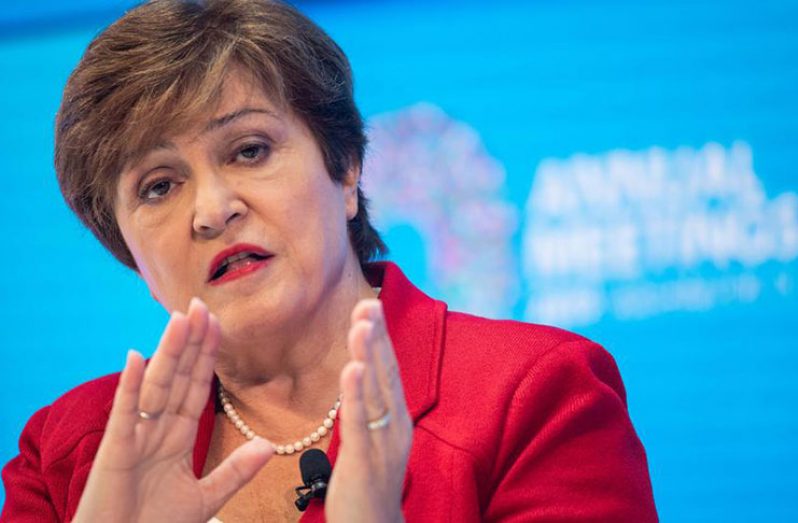EVEN in the midst of the global pandemic, the International Monetary Fund (IMF) has underscored the importance of addressing climate change, as it urged countries of the world to do everything in their power to promote a “green recovery”.
IMF Managing Director, Kristalina Georgieva, at the Petersberg Climate Dialogue, on Wednesday, said that the IMF is prepared to fund both the COVID-19 and the climate change crises as they both carry weight for the world’s future.
“The Petersberg Climate Dialogue comes as we are fighting the COVID-19 pandemic. In the minds of some, the health crisis, and the “great lockdown” needed to address it, meant that we can push the pause button in the fight against the other existential crisis we face—our changing climate. Nothing is further from the truth. We are about to deploy a massive fiscal stimulus which can help us address both crises at the same time,” she sated.
Guyana is in the process of transforming into a ‘Green State’, which will place greater emphasis on the protection of the environment, the preservation of biodiversity and the promotion of renewable energy, through the generation of solar energy and the adoption of practical measures to ensure climate adaptation.
The country has committed to sustainably manage its forest cover as its national contribution to global efforts to combat greenhouse gases, and to combating climate change, through its Nationally Determined Contribution (NDCs) under the United Nations Framework Convention on Climate Change (UNFCCC).
Georgieva said that if the COVID-19 recovery is to be sustainable and the world is to become more resilient, countries must collectively do everything in their power to promote a “green recovery.”
One of the priorities recommended was that when governments provide financial lifelines to carbon-intensive companies, they should mandate commitments to reduce carbon emissions
She explained that such is the wise use of public support and similar agreements were made during the global financial crisis, when some automakers committed to higher fuel efficiency standards
“With oil prices at record-low levels, now is the time to phase out harmful subsidies. And governments need to prioritise investment in green technologies, clean transport, sustainable agriculture, and climate resilience. In the energy sector alone, the IMF estimates that a low-carbon transition would require $2.3 trillion in investment every year for a decade. These types of investments would boost growth and jobs during the recovery phase, and help steer the world in the right climate direction,” Georgieva said.
The IMF Managing Director also urged the promotion of green finance, using green bonds and other forms of sustainable finance, and a substantially higher carbon price, to encourage climate-smart investment.
“Of course, measures taken by individual countries can only succeed if everyone acts. Just as vulnerable countries need support to fight the pandemic, the developing world will need support in reducing carbon emissions and, most importantly, in adapting to the consequences of climate change,” he stated.
“What we do now will not only reshape our economies and societies; it will also reshape humanity’s future on this planet. Coming out of one crisis need not be a prelude to getting into another—a ‘green recovery” is our bridge to a more resilient future.”



.jpg)









